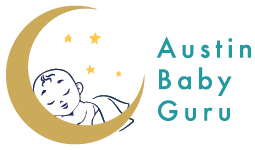As you are preparing for baby, it can feel like there are sooooo many things to get ready and so many plans to make. There are classes, new furniture, baby clothes, feeding supplies, and on and on.
We hear you; we understand how and why these things feel important. AND we want to encourage you to add the following to your list of priorities: prepare to support our mental health.
What Do I Need to Know About PMADs?
1 out of 5 people who give birth or become new parents will experience some sort of perinatal mood and anxiety disorders (PMADs) in the first year of baby’s life. Most birthing people experience some degree of mood swings in the first two weeks after birth; this is often referred to as the “baby blues”. However, some parents experience mental health shifts that require more support. PMADs can take the form of depression, anxiety, OCD, PTSD, and, less often, psychosis. Note that PMADs can impact non-gestational parents as well.
PMADs can affect anyone– a person who carried and birthed a baby, a person who came to be a parent through surrogacy, an adoptive parent, a partner, and so on. Mental health changes around this big life transition can hit anytime within the first year after birth.
Additionally, PMADs can impact the whole family system. Partners or other family members may experience a great deal of internal pressure to help the person experiencing PMADs get “better,” and this can be a heavy load to carry for everyone involved. The person experiencing PMADs may feel shame around what they are feeling and experiencing. From our point of view, many families don’t have the information and/or resources they need to navigate these challenging times.
How Can I Prepare for PMADs?
While we cannot completely eliminate the risk of a family experiencing PMADs, there are things families can do that support their overall wellness and ability to navigate the transition. These same tools can be helpful for families who are experiencing PMASs, to help support themselves and one another through their healing. These ideas include, but are not limited to:
- SLEEP. This means prioritizing sleep when baby is sleeping, and/or hiring or arranging newborn help so you can rest.
- Create a postpartum plan and tap into your support system.
- Stay nourished!
- Get help to take care of the basics. Check out this blog about asking for help!
- Know who to reach out to if you begin experiencing PMADs. Some of our go-to resources include:
ABG is Here for You
Your postpartum experience and your wellness matter deeply to us at Austin Baby Guru. We are here to support you in planning for and navigating your postpartum experience. Please reach out if you’d like to explore these ideas more deeply in a consultation or to book postpartum care.









0 Comments